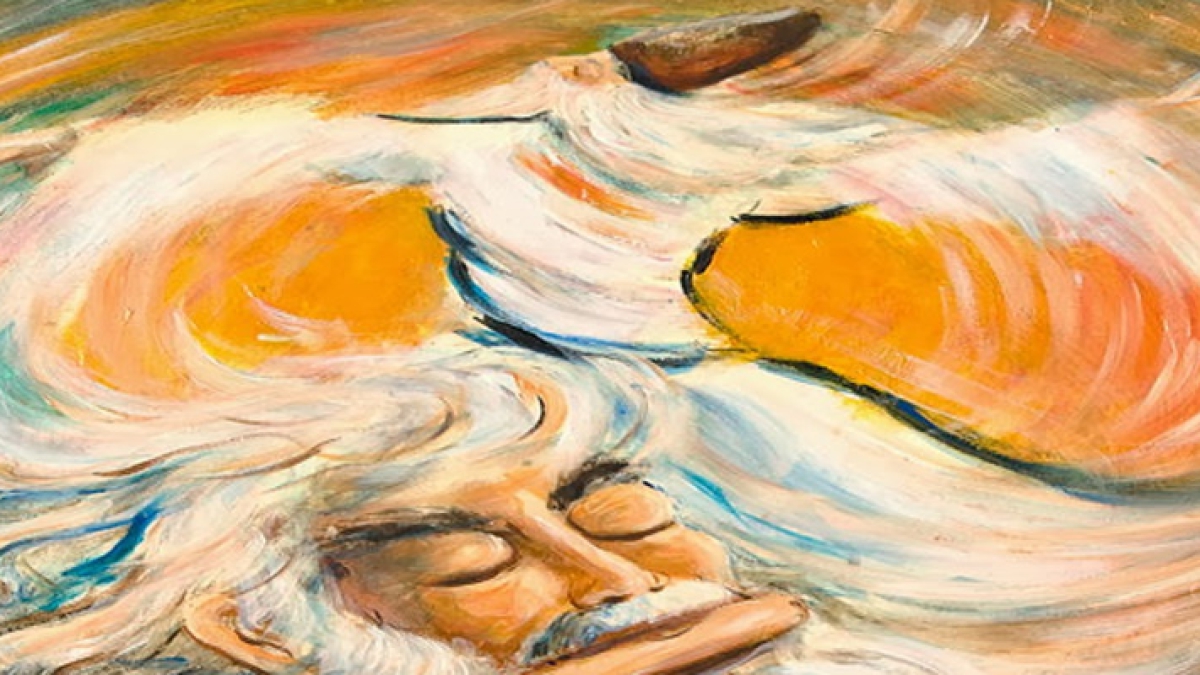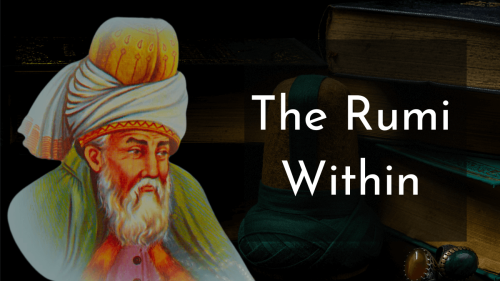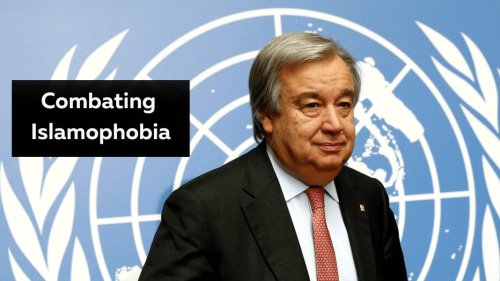How a 13th Century Islamic Poet Conquered America

exploring the relationship between the poet and his most popular translator, Coleman Barks.
The best-selling poet in America today could never have known that someday there would be such a thing as America. Born over eight centuries ago in what is now Afghanistan, Jalal ad-Din Muhammad Rumi, a Sufi mystic, has traversed some rather astonishing cultural and temporal boundaries to become one of the most improbable leaders in American letters. A study of Rumi's success, however, would not be complete without exploring the relationship between the poet and his most popular translator, Coleman Barks.
On the spiritual and textual plane in which Rumi and Barks encounter one another, we find not a clash, but a fusion of civilizations, out of which has emerged a 13th-century Sufi devotee who is devastatingly fluent in postmodern American English. As throngs of Americans now worship Rumi for the way he worshipped Allah-at a time in which "Allah" has become a scary word in the "Western world"-the political significance of Barks' accomplishment cannot be overstated. Barks, a white man from Tennessee, doesn't speak or read a lick of Persian, and this fact both complicates and facilitates his ability to make a historically accurate Rumi accessible to mainstream America. A poet himself, Barks "re-Englishes" existing translations, releasing, in his own words, "the fire and ecstasy of Rumi's ghazals" from the stale confines of their scholarly translations. But because Barks himself has become a palpable presence in these ghazals, some critics have lambasted him for the liberal manner in which he has popularized Rumi.
In the eyes of his detractors, Barks has taken offensive liberties with his quote-unquote translations, disrobing Rumi from some of his more doctrinal attire, and transforming him into such an abstract sprite that any Western reader can easily exploit his icon to sanctify whatever carnal impulse they happen to be experiencing at the moment. Barks opens the door, critics object, to a la la land of no-rules Islam, a playground of exotic wisdom that conflates Sufism with Buddhism, with Taoism, with organic broccoli, with LSD. In Rumi: Past and Present, East and West, Franklin D. Lewis writes that Barks tends to "present Rumi as a guru rather calmly dispensing words of wisdom, capable of resolving, panacea-like, all our ontological ailments." Other scholars note that ambiguous traces of sectarian intolerance and even misogyny can be unearthed by studying Rumi in a historical context, and, in their estimation, Barks glosses over historical context, preferring instead to engage Rumi in the less problematic realm of eternity.
This is, in my opinion, quite harsh treatment of Mr. Barks, who has made tremendous progress in highlighting the shared values of cultures that have forgotten their shared history and humanity. In his defense, Barks has amassed a dedicated following in the Middle East, and despite accusations of cultural insensitivity, he was awarded an honorary doctorate from the University of Tehran for his success in making Rumi a hit in places across the United States where many feared that Barack Obama might be a secret Arab-Muslim. What strikes me most about the criticisms against Barks is that they generally accuse him of giving Rumi too friendly of a face-making him too universal, too endearing, too accessible to Americans. It is here that my praise for Barks flows in exactly the opposite direction of the criticism he has attracted. Although Barks may have had to escort Rumi through Ellis Island to import him to the United States, he has shown that one can Americanize an "other" without bastardizing him. The task of a translator working across vast expanses of time and space is not easy, and what Barks has done is beautifully-indeed, wondrously-rendered Rumi into an English that pierces through the souls of millions of Westerners, yet still remains reverently (if only relatively) faithful to the original Persian.
Poetically, this is significant. But politically, it is momentous. Although something may have been lost in his "translations," something more priceless has been found: in this American Rumi we have acquired a dazzlingly cogent ambassador of a slandered religion, and a most unlikely cultural bridge that could not have come at a better time.
Step outside the library for a moment, and consider the circumstances on the ground. The United States is fighting a war in Afghanistan, the birthplace of Rumi. We're fighting a war, of sorts, in Iraq, the birthplace of Sufism. We have been for some time now teetering on the brink of disaster with Iran, formerly known as Persia, and amid all of this, who rises to become America's most beloved poet? Walt Whitman? Robert Frost? No, a Persian Sufi whirling dervish from Afghanistan who preached of unconditional compassion and sang of the glories of abandoning oneself entirely in the annihilating light of Allah. There is powerful communal capital packed inside this peculiar factoid that could reverberate well beyond the poetry of Rumi. We should not let the organic cultural matter responsible for this transcontinental connection go to waste.
Muslims are mistranslated everywhere
To further dramatize the political import of an accessible Rumi, I'd like to juxtapose Barks' vaguely positive misrepresentation alongside another Persian-to-English translation controversy. In 2005, President Ahmadinejad made the following remark: "بايد از صفحه روزگار محو شود" Whatever this truly "means" in English, the phrase was translated into "Israel must be wiped off the map," and the threat was swiftly relayed across frenzied media wires around the world. Because "wiped off the map" is tough-guy Hollywood slang without even a distant relative in Persian, other translators tried to intervene, offering up some variation of University of Michigan professor Juan Cole's interpretation, "The Imam said that this regime occupying Jerusalem must (vanish from) the page of time." This alternate version reveals that Ahmadinejad, who has no authority whatsoever over Iran's military forces, may not have been directly threatening the people of Israel, but alluding to a passive wish for the collapse of the Israeli government. This distinction is critical. "Wiped off the map," however, has a deliciously genocidal ring to it, and it was quickly seized upon by warmongers in order to bolster their case for dropping B61 nuclear bombs on Iran's nuclear facilities.
Islamophobia has now become a socially acceptable subcategory of anti-Semitism.
This is what we're up against. This is the climate of propaganda and militarism to which responsible cultural and literary criticism must be sensitive. In light of the relentless media assault designed to utterly disfigure the image of Islam in the eyes of the entire Western world, Barks' ostensible efforts to put a brighter smile on Rumi's face is one transgression I can learn to live with. Scholars may bicker-syllable by syllable-over the precise ownership of Rumi's odes, but this battle is bigger than stanzas. Muslims are mistranslated everywhere, egregiously so-not just their poetry, but their faces, their character, their humanity. Before deconstructing Barks to bits, consider the political ramifications of the poetic license assumed in the "wiped off the map" scandal: an entire country was reduced to a second-class leader who was reduced to a caricature who became a manifest casus belli. This is the same process of mistranslating a Middle Eastern country, recall, that led us into Iraq, and this reductive demonology is both representative and routine.
Islamophobia has now become a socially acceptable subcategory of anti-Semitism. Fundamentalist and terrorist have become not fringe, but mainstream definitions of what "Muslim" "means" in a frightened Western consciousness. Every day in the "news," the 1.8 billion varieties of Islamic experience across the world are compressed into quick images of sinister creatures toting weapons, silhouetted by smoke and flame, ululating in alien tongues. Oh, Rumi, if you have indeed inspired an irrational love of Allah through the "translations" of Coleman Barks, is this not better than an irrational hatred of Islam inspired by the "translations" of a hallucinating media machine?
let's focus on joining Rumi in his realm of peace and unity
I do wonder what Rumi would say about all this fuss over what his words meant so many years after his death. Perhaps he would find it ironic, given that he was concerned almost exclusively with the ineffable. It's hard to say what Rumi would say, not only because he's dead, but also because Rumi lost himself in translation a long time ago as he tried and, by his own ecstatic admission, failed to find words to convey the depth of his passion for God. In that sense, even he is an inadequate translator of himself, so perhaps he might cut Coleman Barks some slack. It is, after all, finding union in the silence between words that matters most to the mystic poet, finding connection and completion beyond the divisions of symbols.
Rumi points us to this wordless world, where we stand, if only fleetingly, on common ground with one another, where we are not separate, and no word exists-in any language-to say that you are different from me. As America struggles to find its heart and once again extend it to others, as we tear ourselves apart with metal and language, let's focus on joining Rumi in his realm of peace and unity, and not worry so much over what letters ultimately lead us there.
Ryan Croken is a freelance writer and editor based in Chicago. His work appears in the Philadelphia Inquirer, and on Truthout, Word Riot, and nthposition.
Source: Religion Dispatches
Related Suggestions
Br Shatibi,
Jazaka Allahu khairan for the time you took to write what I have written in past comments about Sufism.
Tasawuf aka Sufism (noun) or Sufia, or Mutasawifa or Mutasawifoon (plural) for Sufi (singular) unlike the Wahaabis claim that is alien to Islam, it has in fact been part of Islam since day 1.
Brother, please remember to also use the Quranic terminology for Tasawuf so that you don't get verbally attacked by some Wahaabi extremists asking you to show them where's the word sufism or tasawuf in the Quran ??? The Quranic word for Tasawuf is: TAZKIA, a derivative word from ZAKAAT. AS you know just as we Muslims must cleanse our income thru Zakaat we also must cleanse our soul thru Tazkia. from the verse: "Wa nafsin wa maa sawaaha fa alhamahaa fujooraha wa taqwaaha; qad aflaha man ZAKAAHA wa khaaba man dasaaha"
I hold Dr Abul Hassan Nadwi in high esteem:
I am glad his list includes Al-Izz Ibn Abdu Salaam but I am surprised his list did not include:
Abdullah Bnu Adham
Attahaalibi
Abu Yazid Al-Bastami
Wael Bnu Ataa Illah etc
Oh well, Allah knows best!
I agree with the contention that muslims have no claim of exclusivity over sufism.
Sufism predates islam, and is found in followers of other faiths also, be they mono-theistic or poly-theistic, even atheistic.
By its very essence sufism looks to transcend religion and dogma. Just as we say islam is not a religion but a way of life and living.
Lastly, the word mysticism is akin to mystery, something hidden, occult. On the contrary, sufism is about looking at the overt, revealed truth, of which there is evidence everywhere (ayat), by lifting the veil from our eyes! Nothing is hidden, there is no mystery or mysticism save what our own intelligence leads us to believe.
Equating sufism with mysticism is a grave error, indeed.
This sort of information should be shared more often to the Islamic community, Its good DAWA , as well as a reminder to us all that we are leaders in the realm of peace.
Vil-Madinah Gharib
Author and Illustrator
The Book of Noble Poems and Short Stories
1. Hasan al Basri (Jurist, Ascetic: early part of Sufism)
2. Umar ibn Abdul Azeez
3. Imam Ahmed ibn Hanbal
4. Abul Hasan Al- Ashari
5. Abdul Qadir Jilani (sufi)
6. Noorudden Zangi
7. Salahuddeen Ayyubi
8. Abdu-Rahman ibn Jawzi
9. Abu Hamid Al-Gazzali (Master of all sciences: jurisprudence, theology, sufism)
10. Izza bin Abdu-Salam
11. Ibn Taymiyya
12. Mawlana Rumi (Jurist, Sufi)
13. Ahmed Shirhindi (Jurist, Sufi)
14. Nizamuddeen Awliyya (Sufi)
15. Sharaf-uddin Yahya Maneri (Sufi)
16. Shah Waliyullah (Master of all sciences: jurisprudence, theology, sufism)
Of these 16 people, 8 are serious practitioners of Sufism and 5 of them are only known for their excellence in Sufism.
Islam has three dimensions: 1) jurisprudence (deals with outward aspect - human actions) 2) theology (deals with thought and belief - intellectual dimension) 3) Tasawwuf (deals with the inner dimension - heart,soul etc - and involves in perfecting human behavior; essentially perfecting the other two dimensions)
Sufism is teh popular name for Tasawwuf. Of course, there is Sufism and then Pseudo-Sufism. Sufism has been practiced both by Shias and Sunnis, though Sunnis are dominant in this practice. As for Wahhabis, their understanding of Islam is NOT based on traditional Islamic sciences and is a movement that arose in the late 18th century in Saudi Arabia. They are an intolerant group who doesn't tolerate any interpretation other than theirs. Don't equate Wahhabis to Traditional Islam. Most Muslims do not understand Sufism, unfortunately.
A good book to understand Sufism is:
The Elements of Sufism by Shaykh Fadhlalla Haeri. available a
1. Hasan al Basri (Jurist, Ascetic: early part of Sufism)
2. Umar ibn Abdul Azeez
3. Imam Ahmed ibn Hanbal
4. Abul Hasan Al- Ashari
5. Abdul Qadir Jilani (sufi)
6. Noorudden Zangi
7. Salahuddeen Ayyubi
8. Abdu-Rahman ibn Jawzi
9. Abu Hamid Al-Gazzali (Master of all sciences: jurisprudence, theology, sufism)
10. Izza bin Abdu-Salam
11. Ibn Taymiyya
12. Mawlana Rumi (Jurist, Sufi)
13. Ahmed Shirhindi (Jurist, Sufi)
14. Nizamuddeen Awliyya (Sufi)
15. Sharaf-uddin Yahya Maneri (Sufi)
16. Shah Waliyullah (Master of all sciences: jurisprudence, theology, sufism)
Of these 16 people, 8 are serious practitioners of Sufism and 5 of them are only known for their excellence in Sufism.
Islam has three dimensions: 1) jurisprudence (deals with outward aspect - human actions) 2) theology (deals with thought and belief - intellectual dimension) 3) Tasawwuf (deals with the inner dimension - heart,soul etc - and involves in perfecting human behavior; essentially perfecting the other two dimensions)
Sufism is teh popular name for Tasawwuf. Of course, there is Sufism and then Pseudo-Sufism. Sufism has been practiced both by Shias and Sunnis, though Sunnis are dominant in this practice. As for Wahhabis, their understanding of Islam is NOT based on traditional Islamic sciences and is a movement that arose in the late 18th century in Saudi Arabia. They are an intolerant group who doesn't tolerate any interpretation other than theirs. Don't equate Wahhabis to Traditional Islam. Most Muslims do not understand Sufism, unfortunately.
A good book to understand Sufism is:
The Elements of Sufism by Shaykh Fadhlalla Haeri. available a
countries; including Malaysia, Indonesia, Tunisia, Morocco,
Palestine, Pakistan. They are everywhere. In fact many sufi
believe is so intermingled in the muslim culture that people
have accept it as being part of Islam.
There are people who make comment in order to divide people,
and there are those make comments and work towards uniting
people. In this day and time to divide you chose to create more
problem but to unite you are part of the solution.
You try talking about sufis being muslim in Saudi Arabia / Iran, you may not survive there; it is only in the freewheeling west, you can make such claims (rightly or wrongly) ans still survive.

















